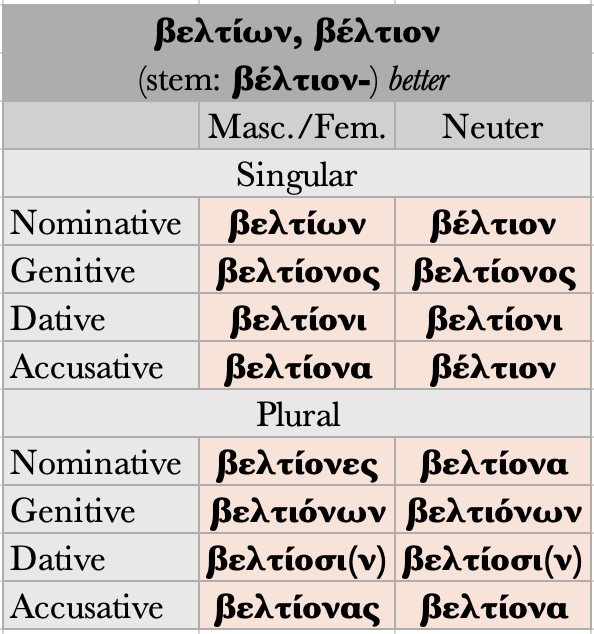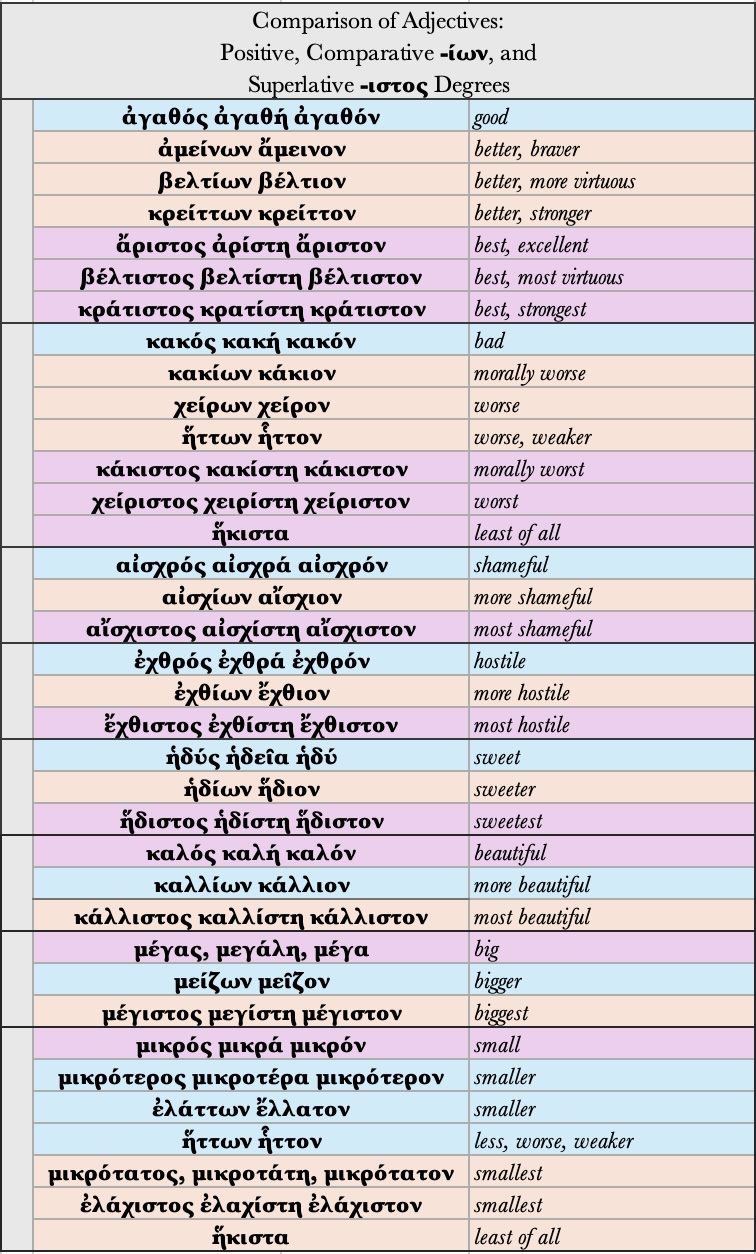36.5 As in English, some Greek adjectives form their comparatives and superlatives differently. The most common alternative marker for the comparative degree is -(ί)ων -(ι)ον. We encountered this form in our previous discussion of adjectives. To review:
36.6 Adjectives that form their comparative degree with -(ί)ων -(ι)ον usually form their superlative degree with -ιστος -ιστη -ιστον. For adjectives that have these superlative endings, the PERSISTENT ACCENT is on the ANTEPENULT (e.g. βέλτιστος βελτίστη βέλτιστον).
In many cases, comparatives and superlatives that end in -(ί)ων /-ιστος are adjectives that, while comparative or superlative in meaning, have no positive degree form of their own. These forms are called IRREGULAR COMPARISONS (S 319, G 182). Note the following examples.




